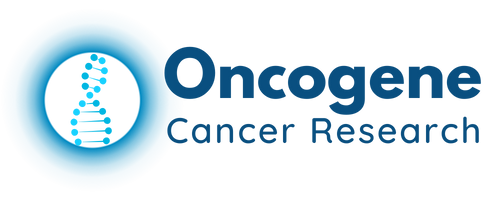News release.
Oncogene Cancer Research calls for urgent reforms in lung cancer communication and shared decision-making following major European survey
4 in 10 people with oncogene-driven lung cancer in Europe say they don’t get the info they need to manage their disease
Only 1 in 4 respondents surveyed understand their diagnosis and treatment options
98% of patients and caregivers want a voice in their care decisions, but only half get it
Patients and caregivers say doctors use language too complex to understand during consultations
Click image to access the full report.
10 JUNE 2025, LONDON – Oncogene Cancer Research today highlights a report examining the experiences of over 1,000 people impacted by oncogene-driven lung cancers across Europe revealing significant gaps in patient information and involvement in treatment decisions.
The Empowering Voices: Knowledge and Decision-Making Among People Impacted by Lung Cancer in Europe report, conducted by Lung Cancer Europe (LuCE) with the support of 40 member organisations, features data from 1,078 participants with oncogene-driven lung cancers such as ALK, EGFR, KRAS, PD-L1, and ROS1.
The key findings highlight a communication crisis, with numerous alarming gaps in patient understanding and engagement.
Only 1 in 4 participants reported having a very good level of knowledge about their disease
Around 25% of respondents had difficulty understanding the information they received
40-50% of participants felt dissatisfied with their level of involvement in shared decision-making
Complex medical information was identified as the primary barrier to meaningful participation in treatment decisions
“As someone living with stage 4 lung cancer, I know first-hand how important it is to receive information that’s not just accurate, but understandable. If patients and care partners are left confused, overwhelmed, or excluded from decisions about their care, we risk missing vital treatment windows – and eroding trust. Our healthcare system needs to speak to patients, not at them. That means better communication, more time with clinicians, and resources that reflect our real questions, fears, and hopes,” said Yvonne Diaz, Co-founder and Chair, Oncogene Cancer Research, a member of the report working group.
Diagnostic journey reveals systemic issues
The research highlighted challenges during the diagnostic phase, with more than 1 in 3 participants reporting insufficient information about their diagnostic pathway. Between 37% and 56% of respondents across different oncogene-driven groups reported inadequate access to healthcare teams during these crucial early stages.
Participants specifically identified their greatest informational needs as:
Clinical trials access and eligibility
Side effects management and expectations
Nutritional and exercise guidance
Psychological counselling support
Patients and care partners want greater involvement despite barriers
Despite these challenges, the study found nearly universal agreement (98% of respondents) that their opinions should be considered in treatment decision-making. However, the reality falls short of this expectation, with only 50-70% of participants feeling their treatment aligned with their personal preferences.
"When your young adult child or loved one is facing a life-changing cancer diagnosis, clear communication isn't just important, it's everything," said Jan Clark, Co-founder & Secretary, Oncogene Cancer Research, and mother to a daughter diagnosed with stage 4 ALK+ lung cancer aged 20. "The fact that nearly half of families aren't getting the information they need to make informed decisions together is unacceptable. Care partners help to process complex medical information and advocate for their loved ones, but we can't do that effectively if healthcare teams aren't communicating clearly. At 20, Amy should be planning her future, not trying to decode medical jargon during treatment discussions. Every family deserves to understand their options and feel confident in their care decisions."
Call for healthcare system reform
The report issues urgent recommendations for healthcare providers:
Provide complete, clear, and comprehensive information tailored to individual preferences and needs
Develop communication strategies that actively support shared decision-making
Allocate adequate consultation time for meaningful patient-provider dialogue
Simplify complex medical information without compromising accuracy
You can find the full LuCE report here.
About the Research
The study surveyed 1,078 participants affected by oncogene-driven lung cancers across the WHO European Region between May and July 2024. The research represents 52.7% of total participants in the broader 9th LuCE Report and provides crucial insights into the experiences of people living with these oncogene-driven cancers.
About Oncogene Cancer Research
Oncogene Cancer Research’s mission is to extend both the length and quality of life for people living with oncogene-driven lung cancers. We accelerate research by funding promising projects, advocating from trial design through to access, and pushing for more clinical trials to open in the UK. We empower patients and caregivers with knowledge and resources to support informed decision-making. And we champion advocacy to ensure the patient voice is heard at every level of care. Find out more at: www.oncogeneresearch.org.
About Lung Cancer Europe (LuCE)
Lung Cancer Europe (LuCE) is a not-for-profit umbrella organisation established in 2013 to provide a platform for lung cancer patient advocacy associations at a European level. Our vision is that all Europeans impacted by or at risk of lung cancer will have access to optimal care so that they have the best possible outcomes and quality of life. We collaborate with members and other stakeholders to destigmatise the disease and ensure that those impacted by lung cancer get the care they need to achieve the best possible outcomes. We empower members to ensure strong and effective lung cancer patient advocacy across Europe.
For any media queries or other requests, please contact us at here.

